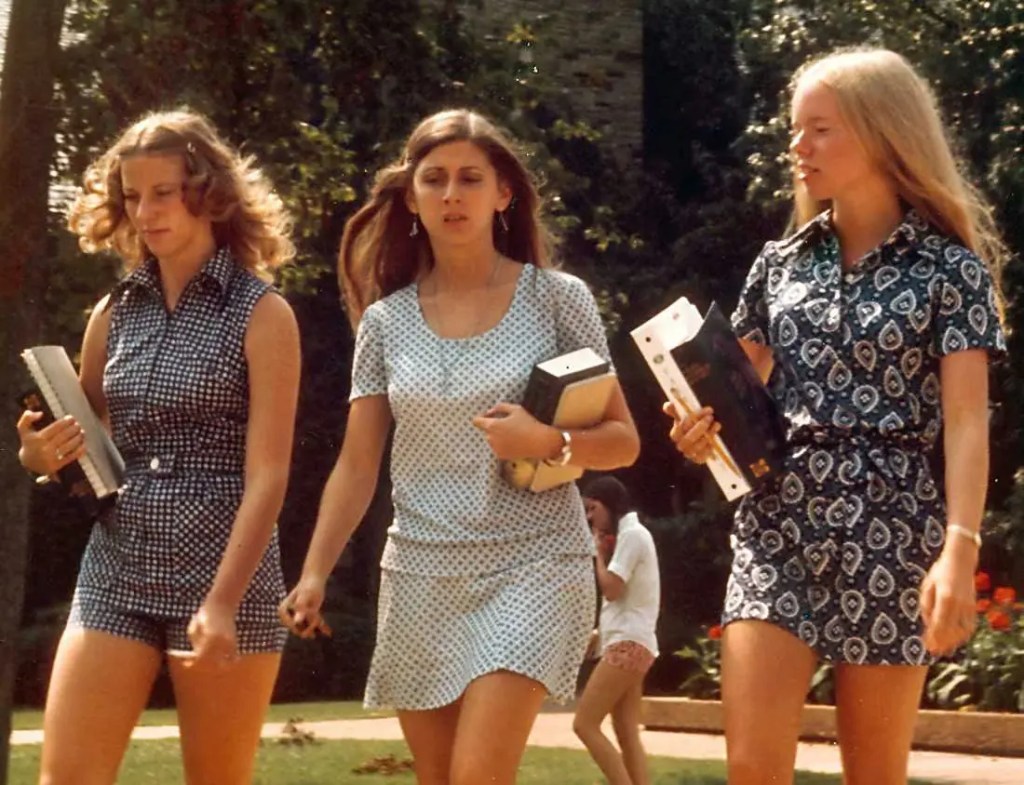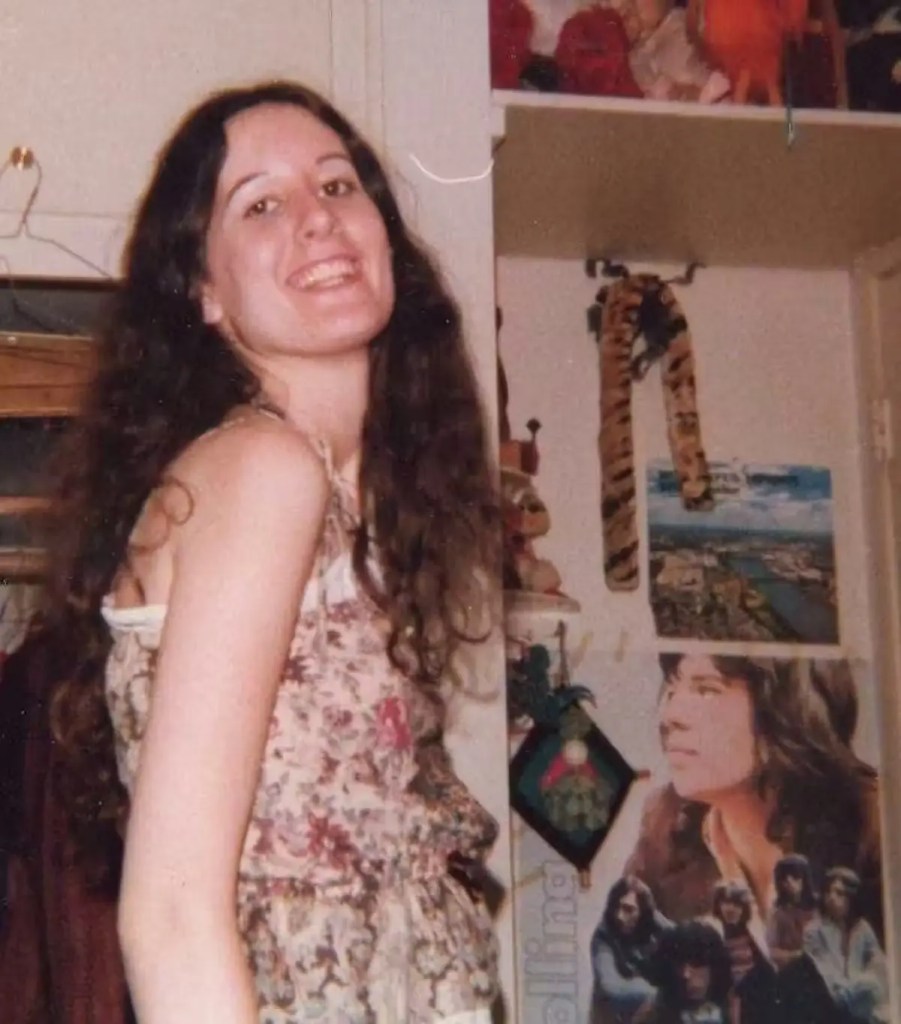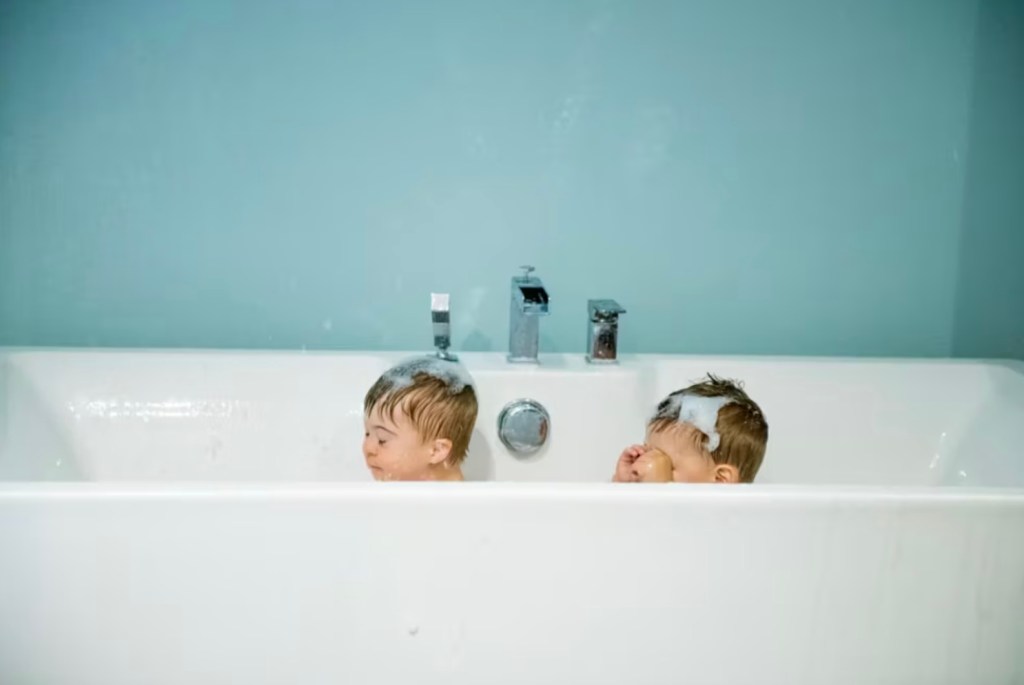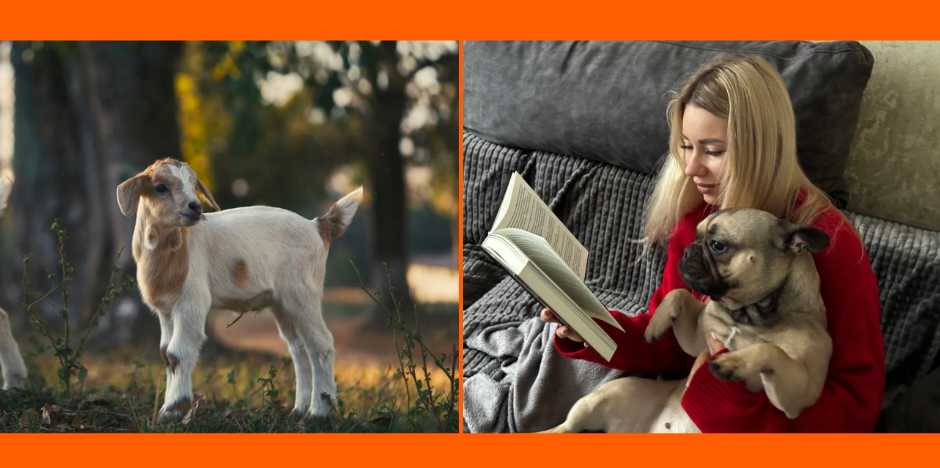In late 2013, a simple fatherhood moment changed my life forever.
I was working in corporate America and took paternity leave to bond with my three-month-old daughter (my second child). One morning, my wife was worried about being late for work while she was in the middle of wrangling my older daughter’s wild hair.
While changing my baby’s diaper in the other room, I simply told her, “Go ahead, I got this.”
Skeptical that I would be able to keep the baby happy while simultaneously playing the role of hairstylist, my wife looked at me and said, “I’ll believe it when I see it,” and she went off to work.
After she left, I set my camera on its timer, took this photo, and emailed it to her.
A simple photo ended up being not so simple after all.
We both got a good chuckle out of the photo, but once I shared it with the public a few hours later, everything changed.
Once I put the photo on social media, people lost their minds — and the reactions were predictable.
Some thought I was the sexiest dad alive, some threw racial slurs my way, some thought I was cool for demonstrating what fatherhood looks like, and some wondered why a guy who takes care of his kids is trending on their news feeds.
Sure, it was a cute photo, but was it really that big of a deal? I received my answer when mainstream media found it a few weeks later, in January 2014.
Before I could blink, the heavy hitters contacted me to discuss “the photo.”
The “Today” show.
Giving Al Roker a shoulder rub on national television was, um, interesting. GIF from the “Today” show.
“Good Morning America.”
I’m not a fan of the “Mr. Mom” label at all. Image from “Good Morning America.”
HLN.
Fist bumps to the dads of the world who take their jobs seriously. GIF from HLN.
Katie Couric.
Being interviewed by Katie Couric was great, but did it really help? Photo from “Katie.”
And dozens more.
It was quite a whirlwind. But it was a conversation I had with a female college student on a flight home from one of those interviews that really made me think.
“I’m sure you had a message to share while you experienced all of the viral stuff,” she said. “Do you think it was heard?”
Good question.
Any idiot can be interviewed on national television, but few can use that opportunity to make a lasting, positive difference.
Was I one of those idiots? Or did I move the conversation forward about what it means to be a modern dad in America?
I still don’t have the answer two years later, but I realized it’s more important to focus on the future instead.
So here are three simple things I want for fatherhood in 2016 and beyond.
1. We have to raise the bar for what it means to be a good dad.
Men expecting props for handling rudimentary child-rearing tasks are no different than men expecting props for staying out of jail. Because as Chris Rock once said, we’re supposed to stay out jail, and we’re supposed to take care of our kids.
That’s right, Chris. GIF from the HBO special “Bring the Pain.”
Most moms aren’t asking for statues to be erected in their honor for taking their kids to the park, giving their babies baths, or waking up in the middle of the night to comfort their children. And neither should any dad.
It’s very simple. If we see a dad doing something adorable with his children, we should pause and ask ourselves this important question: “Would I offer praise to a mom for doing the same thing?” If the answer is yes, then fire away. If the answer is no, then it’s probably a good idea to keep it to ourselves.
Any idiot can be interviewed on national television, but few can use that opportunity to make a lasting, positive difference. Was I one of those idiots? Or did I move the conversation forward about what it means to be a modern dad in America?
2. Let good dads be good dads.
In my experiences, the one thing that new dads complain about the most is being unable to interact with their kids in their own unique way.
Maybe he is provided pointers on how to brush his daughter’s teeth when he really doesn’t need them.
Because sometimes personal hygiene takes teamwork. Photo from the Daddy Doin’ Work Instagram feed, used with permission.
Or maybe his Neanderthal buddies poke fun at him for choosing to open his “daddy nail salon” for his daughter instead of opening a few beers at the local sports bar.
That is one happy customer. Photo from the Daddy Doin’ Work Instagram feed, used with permission.
Either way, it isn’t OK.
These guys are doing their best to navigate through challenges of fatherhood and shouldn’t be demotivated. Just because the way we (dads) do things isn’t the way others may choose to do them doesn’t make it wrong. It makes it different.
3. I want people to look at my photo and think it’s not a big deal.
Right now, there are thousands of dads across the globe doing something infinitely more difficult, cooler, or heartwarming than what I did that morning. We change diapers, we can braid our daughters’ hair, and we are always there physically, emotionally, and spiritually for our children.
But here’s more good news: If a photo similar to mine made the rounds on social media today, I doubt it would create such a stir. That’s because it’s not only cool to be a good dad, but it’s expected to be one.
Gone are the days when a dude can get away with believing his fatherhood responsibilities begin and end with bringing home a nice paycheck. Fatherhood is evolving because we’re finally demanding more of the men who are responsible for raising our kids — and that’s the way it should be.
Now when we discuss viral fatherhood experiences, it will mean dealing with the flu bug that our kids shared with us.
And I highly doubt that will trend on social media.























